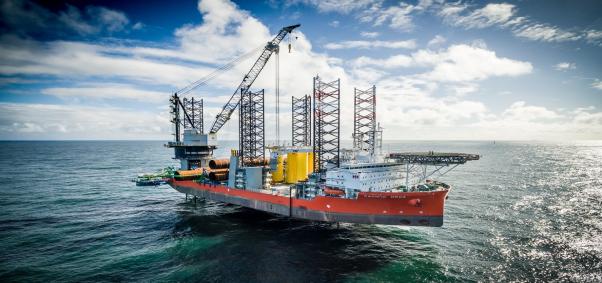
ECONOMIC GROWTH AND COMBATING CLIMATE CHANGE CAN BE ACHIEVED TOGETHER: “BETTER GROWTH, BETTER CLIMATE” REPORT
- Felipe Calderón, president of the Global Commission on the Economy and Climate, presents the report in Mexico to businessmen, legislators, academics and organisations involved with climate change and clean energy.
- The Global Commission on the Economy and Climate report proposes a Global Action Plan with 10 key recommendations for governmental and business leaders.
Felipe Calderón, Chair of the Global Commission on the Economy and Climate, presented the Better Growth, Better Climate report. This commission was created to examine whether it is possible to achieve sustainable economic growth and deal with climate change risks at the same time.
Former President Felipe Calderón indicated that climate change is already a reality and that conclusive scientific evidence exists, such as the increase in temperature due to the greenhouse gases generated by human activity documented by the Intergovernmental Panel for Climate Change (IPCC).
President Calderón said that it is necessary to activate three factors for change: increase the efficacy of resources, invest in low carbon consumption infrastructure and stimulate technological innovation. He added that the application of these factors in three key systems, cities, use of land and energy, will drive economic growth and reduce contaminating gases emissions.
President Calderón said that the next 15 years will be critical since the global economy is undergoing a profound structural transformation. “It is estimated that more than 90 million dollars will be invested in infrastructure in cities, use of land and energy systems,” he stated.
He emphasized that to achieve these changes the report proposes a Global Action Plan with ten key recommendations, among them: accelerate the transformation toward a low carbon economy; sign an international climate agreement that is firm, sustainable and fair; and make cities connected and compact in the new urban development paradigm.
That is the objective of the Global Commission on the Economy and Climate, which, with the participation of more than one hundred institutions around the world arrived at the conclusion: “it is possible to have greater economic growth, create employment, reduce poverty and at the same time improve the climate through the reduction of the greenhouse gases that threaten our future”.
The event benefited from the participation of Helen Mountford, Director of the New Climate Economy as well as María Amparo Martínez Arroyo, General Director of the National Institute of Ecology and Climate Change.
The report concludes that markets are competitive and that consistent signals of government policy are essential for companies and investors to create jobs in low carbon sectors. By establishing a solid price for carbon and some fair rules of engagement through an international climate agreement, governments can liberate new investments and innovation.
The Commission calculated that if its recommendations are implemented, up to a 90% reduction in emissions required before 2030 to avoid dangerous climate change of more than 2°C.
During the next six months, the Commission will discuss the report with those who make economic decisions in the world and will try to motivate stronger action from governments and companies to promote together growth and the reduction of carbon emissions.
The Global Commission on the Economy and Climate is composed of 24 leaders from government, business, finance and economic sectors of 19 countries. The study was carried out by leading research institutions in several countries such as China, India, the U.S., Brazil, Korea, Europe and Africa.
It is worth noting that The New Climate Economy is the banner project of the Global Commission on the Economy and Climate, founded by seven countries: Colombia, Ethiopia, Indonesia, Norway, South Korea, Sweden and the United Kingdom, as an independent initiative to examine how countries can achieve economic growth while taking into account the risks presented by climate change.
The report mentioned above was revealed in the last few days in the city of New York, in the UN headquarters, and in Beijing, Oslo, Addis Ababa, and Johannesburg and was presented in Colombia on October 30th.
PDFs of the press release are available in English and Spanish.






